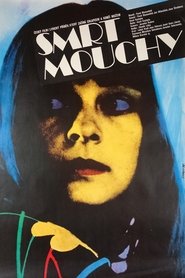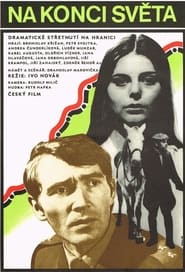detail profile josef somr
Peran Yang Di Mainkan Josef Somr
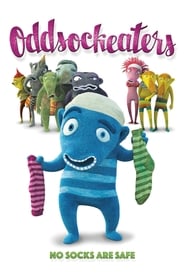 Oddsockeaters are small invisible creatures responsible...
Oddsockeaters are small invisible creatures responsible...The Oddsockeaters 2016
Oddsockeaters are small invisible creatures, responsible for socks that go missing when we only have one left from a pair. But unlike them, Seed’s gang wants to have a pair. In the end, they began their fight between two sets of values.
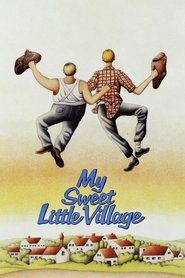 The movies main storyline follows the...
The movies main storyline follows the...My Sweet Little Village 1985
The movie's main storyline follows the life of Otík, a young man, in a tight-knit village community. The sweet-tempered Otík works as an assistant truck driver with Mr. Pávek, his older colleague and practical-minded neighbor. Pávek's family takes care of Otík, whose parents are dead. However, the two coworkers become at odds over Otík's inability to perform even the simplest tasks. Pávek demands that Otík be transferred to assist another driver, who happens to be a choleric and suspicious man named Turek (Turk in Czech). Rather than work with Turek, Otík decides to accept an offer of employment in Prague, but finds he does not fit in to the city life. After discovering that the transfer of Otík to Prague was a trick by a crooked politician to get a deal on Otík's large inherited house, Pávek agrees to give Otík a second chance and retrieves him from the city to resume their work together.
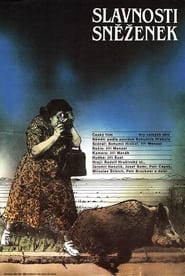 This movie is based on texts...
This movie is based on texts...The Snowdrop Festival 1984
This movie is based on texts of Bohumil Hrabal, world-known Czech prosaic. It's a story (in a form of a mosaic of short episodes and pictures) about the sadness and happiness of inhabitants of Kersko (Kersko is a small woody area full of cottages and roods). These people are both simple and sensitive, they have their own pleasures (e.g. Leli is a collector of cheap, but inutile things) and the greatest delight of all of them is a hunting. Crude poetics of amateur hunting is screened by dreamy pictures of this area. Menzel mixes sentimental lyricism and rough (but not vulgar!) humor and the outcome is the never-ending landscape of continuous life in the proximate nearness of nature. The performances of actors are brilliant. Both Rudolf Hrusinsky as a Franz and Jaromír Hanzlik as a Leli have nonrecurring charm bottomed on a pain and inebriation. Only the music is not perfect: Jiri Sust usually assembled his film music from his older works and in this movie there is many quotations.
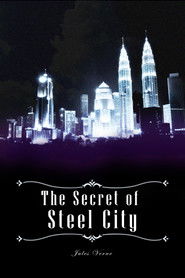 The film is a metaphor for...
The film is a metaphor for...The Secret of Steel City 1979
The film is a metaphor for the Cold War. It depicts two neighbouring nations: peace loving Fortuna and the not so peaceful land of the Steel City.
 Martin a poor student volunteers to...
Martin a poor student volunteers to...The Ninth Heart 1979
Martin, a poor student, volunteers to go on a quest to find a cure for the princess Adriana, who is stricken with a strange illness. Unknown to Martin or anyone else, the princess is actually under the spell of the powerful magician Andlobrandini, who is preparing a rejuvenating elixir made from the blood of nine men's hearts.
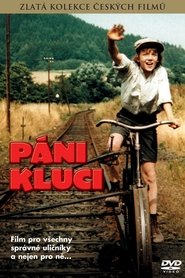 Three friends Toms Hubert and Jozka...
Three friends Toms Hubert and Jozka...Boys Will Be Boys 1976
Three friends - Tomás, Hubert and Jozka - are boys growing up in a little town. Tomás lives with his aunt Apolena and uncle Václav. Tomás is a boy with lots of ideas that often end up getting him into trouble not only with his teachers and aunt, but with the other inhabitants of the town as well. He has a crush on his schoolmate Blanka and for her sake he decides to try to get the prize for the best pupil in the school.
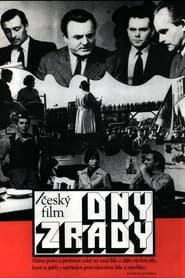 This feature film based on the...
This feature film based on the...Days of Betrayal 1973
This feature film based on the events of 1938 is a chronicle of the futile efforts of the Czechoslovak president Edvard Benes (Jirí Pleskot), politicians and ordinary citizens, to save the independence and the territorial integrity of the state from the advance of Hitler's Germany. On the 29th of March 1938 the leader of the Sudeten Germans Henlein (Werner Ehrlicher) has a meeting with Hitler (Gunnar Möller). Hitler orders him to intensify pressure on the Czechoslovak government. On the 24th of April in Carlsbad, the Sudetendeutsche Partei (Sudeten German Party) decides upon eight demands that are unacceptable to the Czechoslovak President, since they would ultimately lead to the break-up of the Republic. Benes still shows a certain willingness to negotiate, and Henlein resents this. The Germans are determined to make further negotiations impossible through incidents and violence.
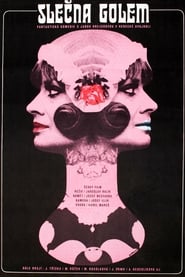 It is the 1920s The goodlooking...
It is the 1920s The goodlooking...Miss Golem 1973
It is the 1920's. The good-looking hostess Věra demonstrates household robots to visitors of the Futurum exhibition. Young inventor Petr comes to her rescue when she tries to flee from two men wanting to take her away. Věra confesses that she has fled from home because her father, a factory owner, wanted to profitably marry her off. Petr is fascinated by the emancipated woman and shows her round his laboratory, where he plans to create a robot of his own - but one that would be far more advanced. Věra cuts herself on a broken test-tube and a drop of her blood gets in the solution. In the morning, they are taken aback to see Věra's double. This lucky chance has helped Petr create an artificial being, Miss Golem. She has a single motive for her actions: to take care of Věra and allow her to do only what is good for her.
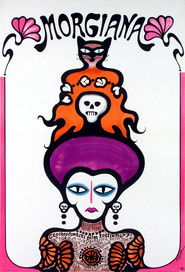 Jealous of her vapidly good sisters...
Jealous of her vapidly good sisters...Morgiana 1972
Jealous of her vapidly "good" sister's popularity, poisonous Viktoria doses pretty Klara's tea with a slow-acting fatal substance. As the latter grows hysterically weak, the former finds success increasingly compromised by guilt, blackmail, and the pesky need to kill others lest she be exposed.
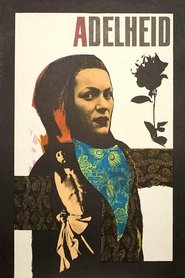 In the aftermath of World War...
In the aftermath of World War...Adelheid 1970
In the aftermath of World War II, a soldier takes charge of a manor formerly owned by a German family and falls in love with the daughter, now a maid. Their relationship forces him to confront the tension between his love and his conscience.
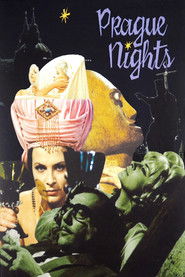 A stuffy middleaged foreigner a businessman...
A stuffy middleaged foreigner a businessman...Prague Nights 1969
A stuffy middle-aged foreigner, a businessman named Fabricius, lonely and looking for a night's diversion, finds it in the form of a mysterious blonde. In an abandoned cemetery, she tells him three tales involving black magic and erotic obsession. In "The Last Golem," a young rabbi struggles to fashion a massive, silent giant out of living clay — until he's distracted by a mute servant girl. In the second episode, "Bread Slippers," an 18th-century countess indulges her passion for sweet cakes, adulterous affairs, and secret kisses with pretty maids until a mysterious visitor whisks her away to an abandoned mansion, where Fate has a different kind of dance in store for her. And in the final story, "Poisoned Poisoner," a ravishing murderess in the Middle Ages dispatches lecherous merchants to the tune of upbeat '60s Czech pop songs.
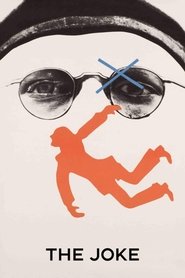 In the 1950s Ludvik Jahn was...
In the 1950s Ludvik Jahn was...The Joke 1969
In the 1950s, Ludvik Jahn was expelled from the Communist Party and the University by his fellow students, because of a politically incorrect note he sent to his girlfriend. Fifteen years later, he tries to get his revenge by seducing Helena, the wife of one of his accusers.
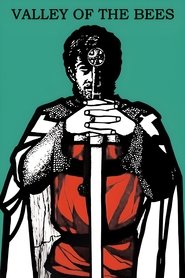 Cast out by his father young...
Cast out by his father young...The Valley of the Bees 1968
Cast out by his father, young Ondrej joins the Order of the Teutonic Knights, where he is raised by strict monk Armin. After years of hardship, Ondrej escapes from the Order when he is wrongly punished, and sets out for his former home. Arriving to discover his father to be dead, Ondrej now not only assumes control of his father's properties, but seeks to marry his former stepmother.
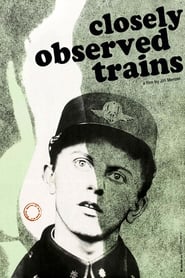 At a village railway station in...
At a village railway station in...Closely Watched Trains 1966
At a village railway station in occupied Czechoslovakia, a bumbling dispatcher’s apprentice longs to liberate himself from his virginity. Oblivious to the war and the resistance that surrounds him, this young man embarks on a journey of sexual awakening and self-discovery, encountering a universe of frustration, eroticism, and adventure within his sleepy backwater depot.
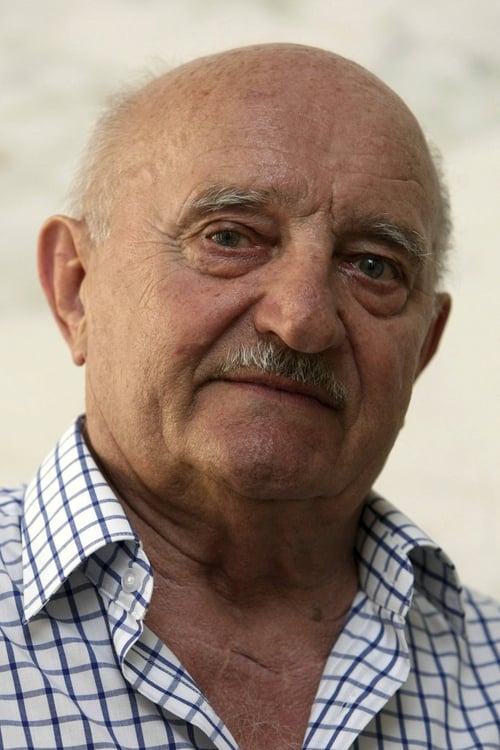
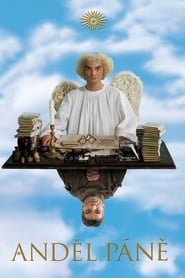 An angel who ruins everything he...
An angel who ruins everything he...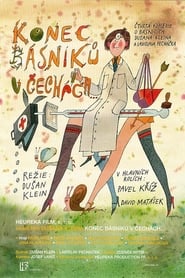
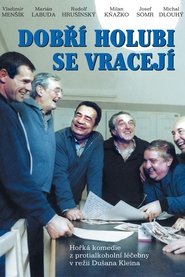
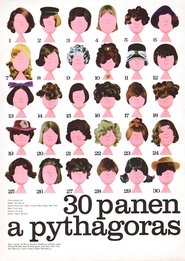 A musical starring Ji Menzel whose...
A musical starring Ji Menzel whose...